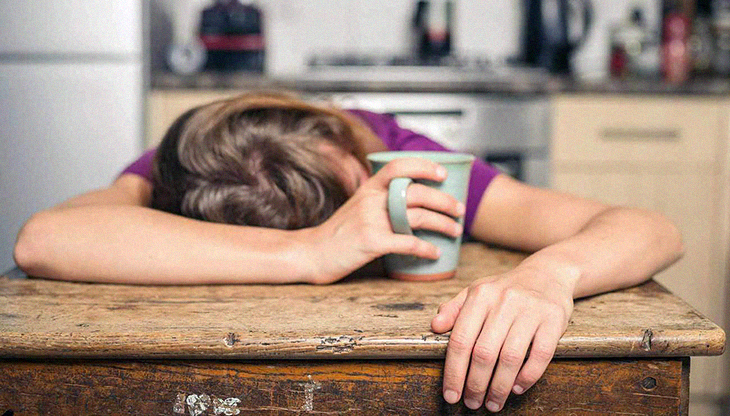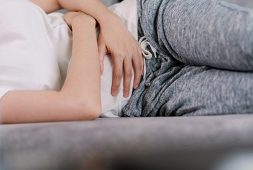
Has sleep eluded you over the past year due to the pandemic? Or maybe you’ve just never really been a great sleeper in the first place (is there even such a thing?!) There could be a chance that more than the stress and anxiety that many have been dealing with all throughout the last year, and until now actually, has more to do with your food and drink choices.
There are a ton of things that can affect your sleep, including your daily routine, your stress levels, how much you exercise, and even daylight. But one thing that many don’t consider when it comes to sleep is their diet. Professor Kevin Morgan, who happens to be a sleep expert, shares, “Although there’s little evidence you can eat yourself to sleep, diet can certainly impact it negatively.”
How Irregular Mealtimes May Affect Sleep
Professor Morgan says, “What keeps our sleep in sync is regularity of habit.” Since the body has its own internal clock, which is known as the circadian rhythm, it’s something that’s specific to each individual and it’s what your body is used to. When it comes to mealtimes, the body uses them as “time cues,” allowing the body to figure out how to synchronize the body to both daytime and nighttime.
Morgan adds, “If you disrupt your circadian rhythm you will disrupt your sleep.”
Although each person has their own meal times, it’s still important for everyone to eat their meals at the “right time,” while also being consistent with your meal times as well. Changing meal times or straying from your usual eating times on some days cannot be avoided, but Morgan also explains that at least the body’s rhythm finds a way to “recover in a couple days.”
How A Nutrient-Low Diet Can Affect Sleep
Research has shown that diets that are rich in nutrients can positively benefit one’s sleep. A study showed that for adults that have a lower intake of calcium, magnesium and vitamin D, normally don’t get enough sleep. In fact, there is information that explains how an average of adults aged 50 and above, there is a link between reduced intake of vitamins C, D, E and K and poor sleep. What the study lacks though is whether bad sleep is directly correlated to a lack of vitamin intake, if the adults that suffer from bad sleep do not eat well-balanced diets, or if there was a combination of both issues in the participants.
Another thing to consider is that whatever food you do ingest is also feeing the millions and trillions of bacteria that live in your gut. Another study explains how for some people, having a diverse amount of microbes within your gut could actually improve your sleep.
Studies explain that in order to boost your microbiome within the gut, it truly depends on what you eat. Professor Tim Spector of King’s College and The Gut Health Doctor, Dr. Megan Rossi, both gut-health experts, recommend eating ‘at least 30 different plants over a week.’ This includes foods such as a variety of nuts, grains, seeds, pulses, herbs, and tons of fruit and vegetables too. It’s also important for individuals to ingest lots of high-fiber foods and certain probiotics, while avoiding other foods that are either highly-processed or high in sugar. BBC also offers some insight into what you should be eating to create a healthy gut.
How Drinking Caffeine Too Late In the Day Can Affect Your Sleep
While the coffee industry is an over one hundred billion dollar producing business, not too many think about how caffeine affects their systems after they drink just one cup. Caffeine can remain within someone’s system for at least five to six hours after they drink it, and another quarter after 10 to 12 hours have passed. While it also offers an initial boost and skip to your step, caffeine can also block the receptors of the chemical adenosine, which is in charge of bolstering positive feelings of tiredness which actually help you fall asleep. And when you finally do fall asleep, caffeine still has the ability to lessen the amount of deep and restorative sleep that you should have.
Sleep scientist Professor Matt Walker explains that when this occurs, “you can wake up the next morning and not feel refreshed.” It’s also important to note that coffee isn’t the only product we ingest that contains high amounts of caffeine. Certain teas, some chocolates, and other energy drinks also have caffeine, although cocoa-based products are usually much lower than coffee ones.
How Alcohol Hinders or Blocks Sleep
When it comes to alcohol, Walker shares, “Alcohol is perhaps one of the most misunderstood sleep aids.” Although alcohol acts as a sedative, being sedated is not the same as having natural sleep. What sedation does is it switches off the “firing of the brain cells,” yet when someone is in their normal deep sleep, what the brain is actually doing is creating major brain waves with “incredible coordination of hundreds of thousands of cells.”
With alcohol, it has the ability to block rapid eye movement, better known as REM sleep, which is the sleep stage where people dream. REM is incredibly helpful as it “benefits emotional and mental health, even creativity.” Alcohol also has the adverse ability to cause the “fight or flight branch of the nervous system” as you sleep, and when this occurs, you may find yourself waking up more often in the middle of the night.
Professor Morgan also suggests that “any dietary adjustments you make to improve your sleep will be eclipsed by the impact of alcohol,” although he also says that small amounts may not necessarily have a negative impact as well.
Consuming Too Many Liquids Before Bed Time Can Also Impair Sleep
The Harvard Health Publishing of the Harvard Medical School suggests that the average healthy person should drink at least four to six cups of water a day, while others advise at least six to eight glasses a day. And it’s also important to remain hydrated all throughout the day. But when it comes to bed time, the suggestion is to lessen that amount at least one to two hours before sleeping to reduce the number of times you may wake up in the middle of the night to pee.
Notably, when it comes to drinks that are meant to help you sleep, such as herbal teas or hot milk, there are still some that do not benefit from them positively. Morgan explains, “People who normally drink hot milk before bed may have a worse night’s sleep if they are deprived of it, but those who don’t may have their sleep impacted if they are given it.”
Like chamomile, which is a well-known herb normally taken as tea, it is used to better anxiety, insomnia and other sleep problems, yet drinking it as a liquid can still disturb night time sleep because of the need to pee. This is why chamomile tablets might be a better option for users instead of tea to lessen nighttime bathroom trips.
If you or someone you know suffers from sleep issues or sleep deprivation, be sure to seek out treatment with a medical health professional.



